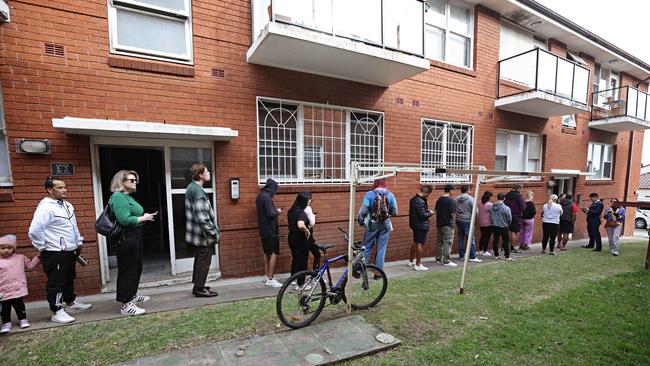Simple mistakes costing renters big time
These simple yet costly mistakes are giving renters huge headaches. Luckily they are easy to avoid with a bit of application.
Property
Don't miss out on the headlines from Property. Followed categories will be added to My News.
It can be unnerving applying for a rental property – especially when you are up against dozens of other applicants. But according to property managers, hopeful renters are shooting themselves in the foot by making simple yet costly mistakes that send their applications right to the bottom of the pile. Here are some of the biggest mistakes renters are making when submitting their applications.

INCOMPLETE APPLICATIONS
According to executive general manager of Property Services at Little Real Estate Anne Crarey, about half of the applications the agency receives are incomplete, which sets up a game of cat and mouse for property managers.
“You’ve got to go back to the applicant and get all the information again,” she said.
The mistake is something that Ray White agent Avi Khan also comes across frequently – and it comes with big consequences for the applicants.

“Any application that is fully complete will be on the top of the pile – that’s what we process first,” he said. “If the property manager has to chase you, you’re at the bottom of the pile – some of the incomplete applications won’t even be looked at.”
The Rental Specialists principal Jo Natoli said an application won’t be considered without a current copy of the tenancy ledger and the applicant’s most recent pay slips.
“We need to be able to ascertain and confirm if they can afford the rent,” she said.

FALSIFYING INFORMATION
Lying on the application is another huge mistake that renters make, Natoli said.
“When they are renting privately or if they have a poor rental history, they might try and get away with using friends as landlord references,” she said, adding that real estate agents have access to different databases that enable them to verify tenancy records. “If a tenant has a patchy history, they are better off being open.”
Khan said most agencies don’t look kindly upon renters that either make things up or try to withhold information.
“Once you lie about something in your application, you are totally ruled out,” he said.

UNRESPONSIVE REFEREES
Not contacting referees before applying is another big no-no. Not giving them the heads up can lead to phone calls being ignored or emails not being noticed – and this reflects poorly on the applicant.
“The best foot forward is actually letting your agent or employer know that someone is going to be contacting them,” Crarey said.
In addition to the referees being hard to track down, sometimes the renters themselves prove hard to contact, she said. If an applicant doesn’t respond to an agent’s request in a timely manner, they can kiss the property they applied for goodbye.

NOT INCLUDING A COVER LETTER
In a market where landlords can take their pick from a pool of multiple applicants, it’s a big mistake not to include a cover letter, Crarey said. Not only does a cover letter let you pitch yourself as an ideal tenant, it also allows you to explain any gaps in employment or rental history. Not doing so is another common mistake renters make, she said.
“If you’re explaining it to us in a cover letter it’s something we can have a conversation with the landlord about immediately rather than playing telephone tag with the applicant,” she said.
The same goes with pets, Khan said, explaining that people often make the mistake of omitting whether the animal is required for a medical reason. He said it’s also important to include a photo.
“Not everyone knows the type of dog that you have,” he said. “Some types of dogs are small and some types are large.”

TOP APPLICATION TIPS
If you want to boost your rental application so that it sits on top of the pile, property managers recommend the following tips:
* Submit the application in full and without delay
* Make sure all documentation and information is current
* Include a current Tenancy Ledger and your last few pay slips
* Write a cover letter and use this to explain any gaps in employment or rental history
* Include a pet resume with a photo and any important information
* Build a good rapport with the agent that holds the inspection
* Let your references know each time you apply so they can be prepared




